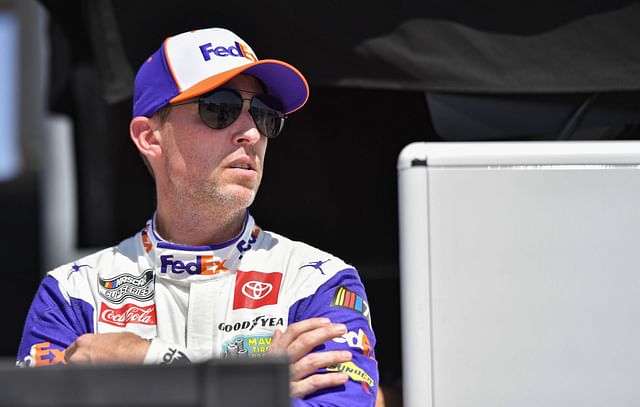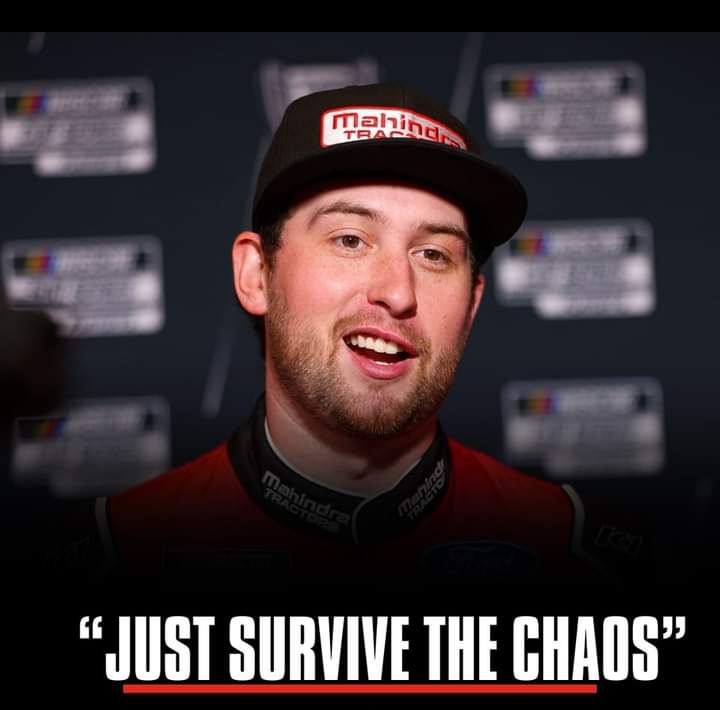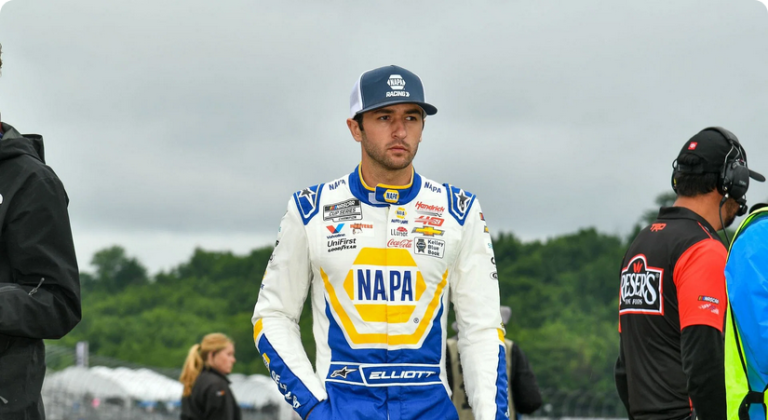The NASCAR Cup Series Cook Out 400 at Richmond Raceway on August 11, 2024, was marked by one of the most dramatic and controversial finishes in recent memory. The race, which saw Austin Dillon break a 68-race winless streak, ended with a series of aggressive moves and post-race confrontations that have left fans and drivers alike debating the ethics and sportsmanship involved.
Austin Dillon, who had been struggling throughout the season and found himself 32nd in the points standings, knew that a win at Richmond would be his ticket into the playoffs. From the start, Dillon was competitive, staying within the top ten and gradually moving up the ranks as the race progressed. The tension was palpable as drivers battled for position on the tight, short-track layout of Richmond Raceway.
As the race entered its final stages, Dillon managed to take the lead with 29 laps remaining. He maintained his position despite the intense pressure from other top drivers, including Joey Logano and Denny Hamlin. Just when it seemed that Dillon might cruise to a straightforward victory, a late-race incident involving Ricky Stenhouse Jr. and Ryan Preece brought out a caution with less than two laps to go, setting up an overtime finish.
On the overtime restart, Joey Logano, a two-time Cup Series champion known for his aggressive driving style, took the lead. Dillon was right behind him, and as they approached the checkered flag, he saw his opportunity. Heading into the final turn, Dillon made a bold and aggressive move, driving hard into the corner and making contact with Logano. The impact sent Logano spinning, and as Dillon continued, he clipped the right rear of Denny Hamlin’s car, sending Hamlin into the wall. With both of his main competitors out of the way, Dillon sped to the finish line, securing a highly contentious victory.
The immediate aftermath of the race was chaotic. Joey Logano, clearly frustrated and angry, did not mince words in his post-race interview. Using an expletive, he described Dillon’s actions as reckless and unnecessary. He criticized Dillon for making such an aggressive move from several car lengths back, arguing that it was not a typical “bump and run” but rather a reckless dive that had no chance of succeeding cleanly. Logano’s frustration was evident as he vented about the state of racing and the tactics employed by some drivers to secure a win.
Denny Hamlin, who had briefly taken the lead after Logano was spun, was also vocal about his displeasure. While Hamlin acknowledged the stakes involved and understood the desperation that might drive such a move, he also hinted at potential retribution. Hamlin’s remarks suggested that drivers who make such aggressive moves often face consequences in future races, as the unwritten code of NASCAR dictates that drivers “pay their dues” for actions that disrupt the race for others.
Bubba Wallace, who finished fourth, added his voice to the chorus of criticism. Wallace, who had been running strong throughout the race, expressed his disapproval of Dillon’s move, emphasizing that such aggressive tactics diminish the integrity of the sport. Wallace’s comments reflected a broader concern among drivers and fans about the increasing aggressiveness seen in NASCAR, where the win-at-all-costs mentality sometimes overshadows sportsmanship and respect on the track.
Austin Dillon, on the other hand, defended his actions, stating that the opportunity to win was too significant to pass up. In his post-race interview, Dillon admitted that he hated having to make such a move but felt it was necessary given the stakes. Dillon’s win secured him a spot in the playoffs and ended a long winless streak, a victory that was undoubtedly crucial for his team and sponsors. However, his justification did little to appease his critics, who saw his actions as emblematic of a troubling trend in NASCAR racing.
The controversy surrounding Dillon’s win at Richmond has sparked a wider debate within the NASCAR community about the ethics of racing. Some argue that aggressive moves are part and parcel of the sport, especially in high-stakes situations where playoff spots are on the line. Others believe that there should be a line between competitive driving and reckless endangerment, and that drivers who cross that line should face consequences.
Elton Sawyer, NASCAR’s Senior Vice President of Competition, did not rule out the possibility of penalties for Dillon. Sawyer acknowledged the complexity of the situation, noting that while aggressive driving is part of NASCAR’s appeal, there are boundaries that should not be crossed. NASCAR officials would review the incident, considering both the rules and the spirit of fair competition.
As the dust settles from the Cook Out 400, the implications of Dillon’s win will likely be felt in the weeks and months to come. For Dillon, the victory is a career-defining moment that propels him into the playoffs. For Logano and Hamlin, it’s a reminder of the thin line between victory and defeat in NASCAR. And for the sport as a whole, it’s an opportunity to reflect on the balance between aggressive driving and sportsmanship.
The Richmond race is a microcosm of the broader challenges facing NASCAR today. With increasing pressure to entertain fans and secure sponsorships, drivers are often incentivized to take risks that can lead to dramatic and controversial outcomes. This dynamic can enhance the excitement of races but also raises questions about the long-term health of the sport and the safety of its participants.
In the end, the Cook Out 400 at Richmond Raceway will be remembered not just for Austin Dillon’s win but for the contentious manner in which it was achieved. The fallout from the race will continue to reverberate through the NASCAR community, influencing how drivers approach future races and how NASCAR officials enforce the rules that govern the sport. For fans, it’s a stark reminder of the unpredictable and often contentious nature of racing, where the quest for victory can sometimes overshadow the principles of fair play and mutual respect.



